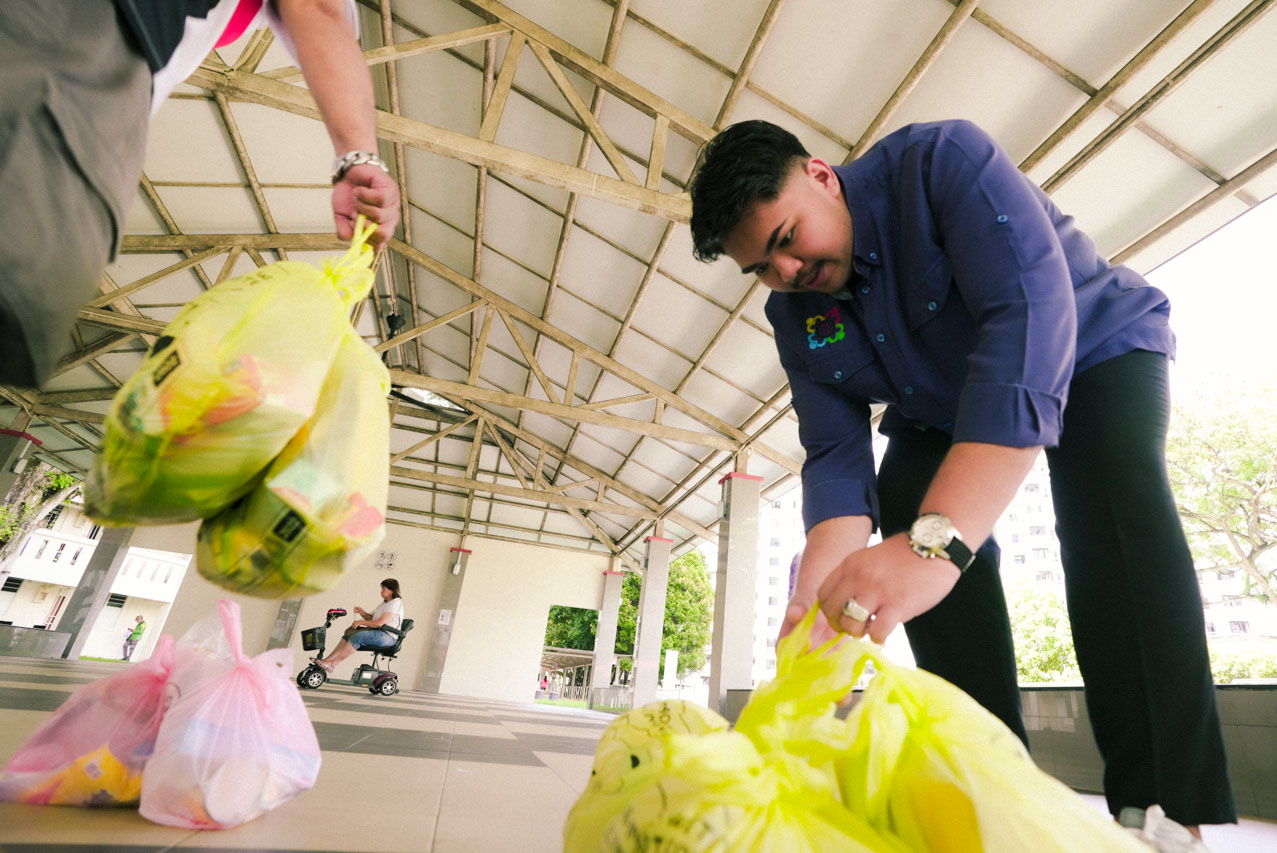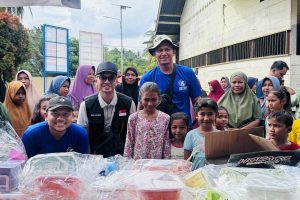All images by Isaiah Chua for RICE Media unless stated otherwise.
On a humid Saturday morning in Toa Payoh, a familiar ritual unfolds beneath a public pavilion. Volunteers with Free Food For All (FFFA), a local charity, are swiftly handing out bags of meals and cakes to hundreds of needy residents.
Helping lead the food distribution is soft-spoken Ammar Nizar. The 23-year-old scans the crowd. When he spots a few stragglers—a shy silver-haired couple, a few kids—milling around the back, he approaches, bags of food in hand.
Their exchanges are largely wordless, but the smiles on the recipients’ faces as they walk away speak volumes.
An elderly resident helping out at the event pauses. He recognises Ammar.
“If your dad wasn’t here then, this neighbourhood wouldn’t be so active,” the uncle says, removing his sunglasses with a nod.
“Thank you for being here.”
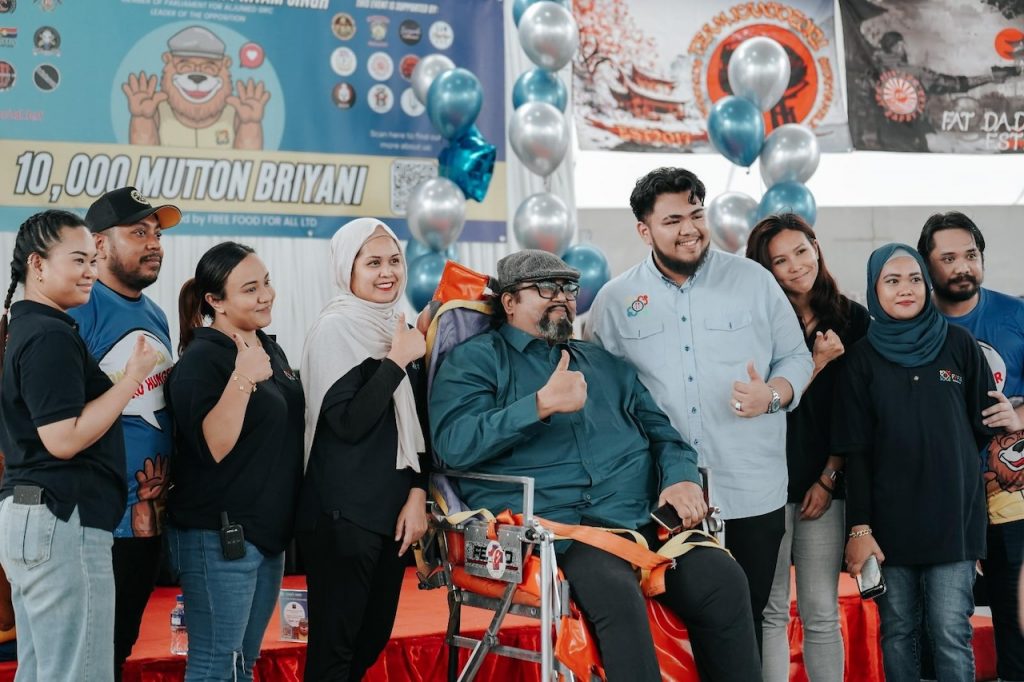
It’s a line Ammar hears often. His late father, ‘Big Bear’ Nizar Mohamed Shariff, was someone who refused to let others go hungry. Over his decade at the helm of FFFA, Nizar had fed over 144,000 people through food distribution initiatives, often out of his own pocket.
But after Nizar’s sudden passing at the age of 53 in 2023, his work at the charity has fallen upon Ammar and his older brother, 31-year-old Dr Shaik Ahmad.
Moments like these are reminders of the legacy Ammar now bears—as a son, and as FFFA’s Operations Advisor. He frequently talks about it amongst the charity’s six full-time staff.
At every board meeting, Ammar and Shaik—who now chairs FFFA—ask themselves the same question: “Are we doing enough for our beneficiaries?”
In a country where one in ten people in Singapore can struggle to make ends meet, it’s a question that doesn’t go away.
But what does ‘doing enough’ look like for someone who saw their father give everything?
The Old Guard
Ammar was just 12 when Nizar started donating food anonymously.
Nizar, who worked in the shipping industry, would drop off nasi lemak and fruits at mosques in Chai Chee, where the family lived. It bothered him to see cardboard collectors and tissue sellers scraping by, their meals dependent on random kindness.
He taught his kids to always tip service workers whenever they could—a habit that Ammar still has to this day—but he wanted to do more. He wanted to make sure the people he fed felt dignity, not pity.
“(He) would only choose the expensive bananas… he wanted these people eating them to feel like they were eating something of a better class.”
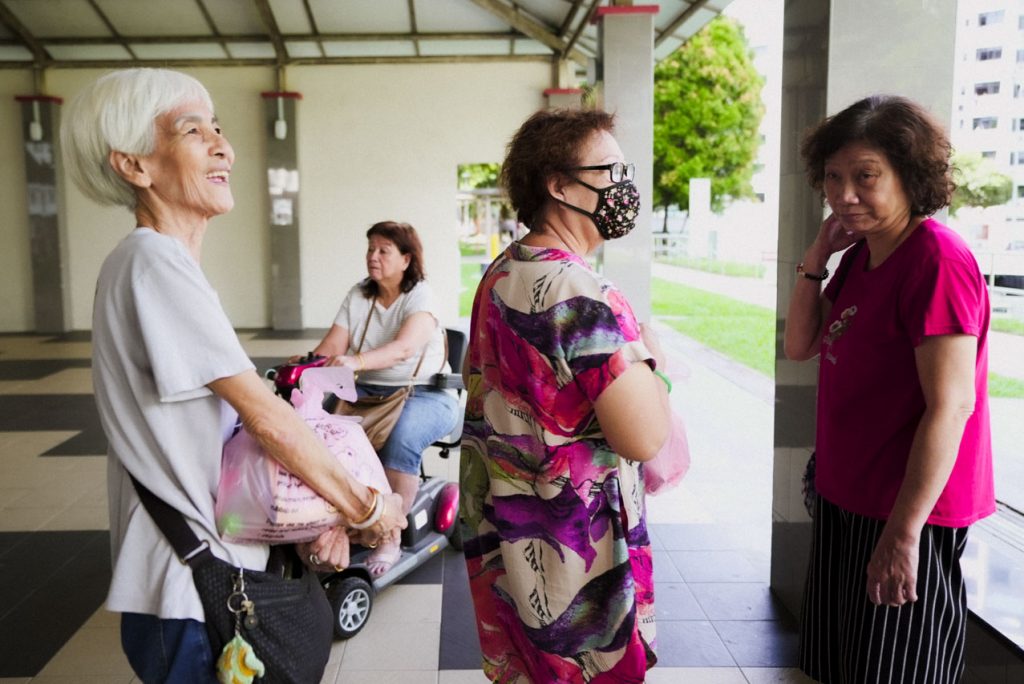
When community members caught wind of Nizar’s charity work and started sending financial support to grow it, he formally started FFFA with two friends—one who still sits on the organisation’s board to this day.
It kicked off a marathon that Nizar refused to stop running for a decade straight. Nizar devoted every cell in his body to his passion for charity, Ammar tells me.
“It was always taking calls. He was always setting up meetings. And even when he wasn’t meeting anybody or calling anybody, he was using that time to think about how to better impact Singaporeans.”
Ammar had always been proud of his father. But as a boy, he sometimes wished he could have more time with his dad. It wasn’t until he began tagging along for FFFA events in his teens that he started to understand.
There were nights when Ammar overheard Nizar’s phone calls with beneficiaries, who would tearfully thank him for his food—people who could’ve gone hungry otherwise. Moments like these gave Ammar pause.
“I realised very early on that he had a whole other calling, which was to be a father to everyone else as well.”
Ammar saw this calling blossom over the course of a decade, with front-row seats as his dad expanded FFFA from a humble block-to-block initiative to one that attracted national recognition by the Istana.
Even when his long battle with diabetes hardened, Nizar often told his four kids that he would endure, holding out to ensure FFFA was left in good hands.
After many nights as Nizar’s confidant on all his dreams and fears for the organisation, Ammar felt no one was better suited to help run operations than he was.
“I told him: After my diploma, I’ll join in, and you’ll teach me the ropes.”
Steering a Ship Without Its Mast
Ammar thought he’d have more time to learn under his father’s tutelage, but it was not to be.
In September 2023, Ammar officially joined FFFA. It was a humbling start, as he was flooded by the auditing, delivery coordination, quality control, and other elbow work Nizar had kept on the down low.
“These are things that my dad never let other people see because he wanted people to believe that giving was easy. Because when people believe that giving is easy, then more people will give.”
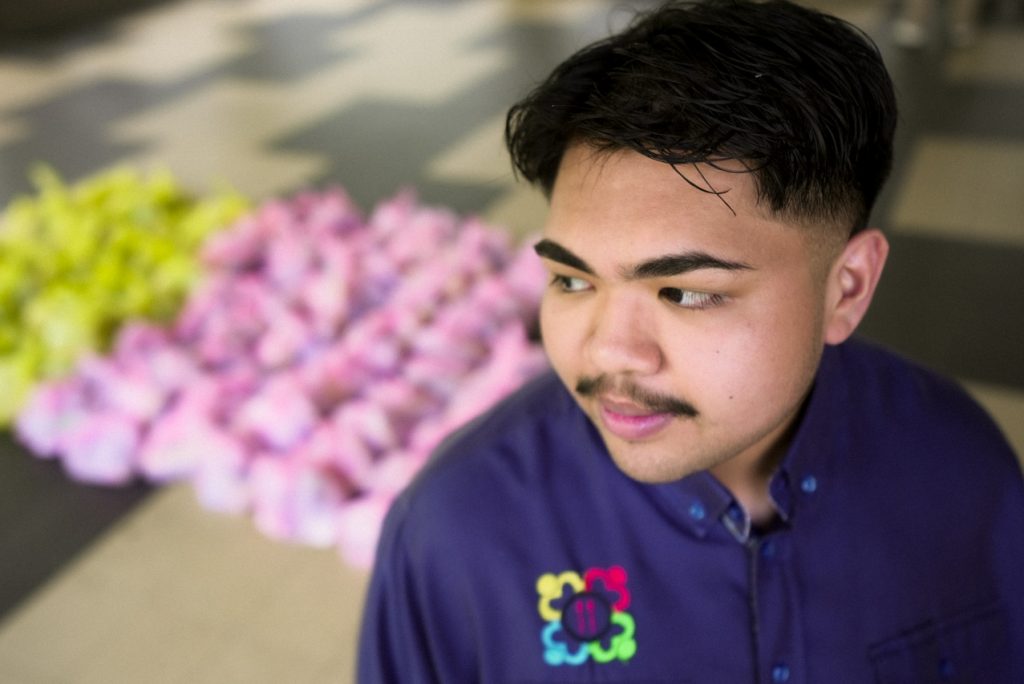
Just a month later, in October, Nizar’s health took a turn for the worse.
Even when both fell sick with the flu, the father and son spent hours talking about FFFA’s future. Then one morning, the family’s helper awoke Ammar. His dad couldn’t breathe, and no one else was at home.
“I kept his head down, and I was just rubbing his chest and his arm. I told him that… I told him that I loved him, and it was going to be okay, but he couldn’t reply me. And then his arm went limp.”
They lost Nizar that day. Even in the first days of mourning, people asked about what would happen to the FFFA.
“It almost seemed like we maybe purposefully didn’t give ourselves enough time to grieve, because everyone was asking,” Ammar muses.
What compounded the grief was fear: What if people forgot Nizar? What if the work lost its soul?
In those moments, it was Shaik who stepped in as Ammar’s guide, reminding him that legacy doesn’t vanish with a person’s body.
Ammar came to a realisation that he didn’t have to take over as FFFA’s general manager right away. He could still honour his father by shadowing FFFA’s leadership and learning about the nuts and bolts of the business.
“He’s a visionary young man, matured a lot since I met him,” Firdaus, FFFA’s Marketing Manager, tells me.
Before Nizar died, he had asked Firdaus to mentor Ammar. Patting Ammar on the shoulder, Firdaus adds, “He’s stepped up since his late dad passed.”
Nizar certainly left his sons with some big shoes to fill. But Ammar tells me later, “Every step forward we take gives me more closure that what I’m doing is making my dad happy. And if he was here, he would be proud.”
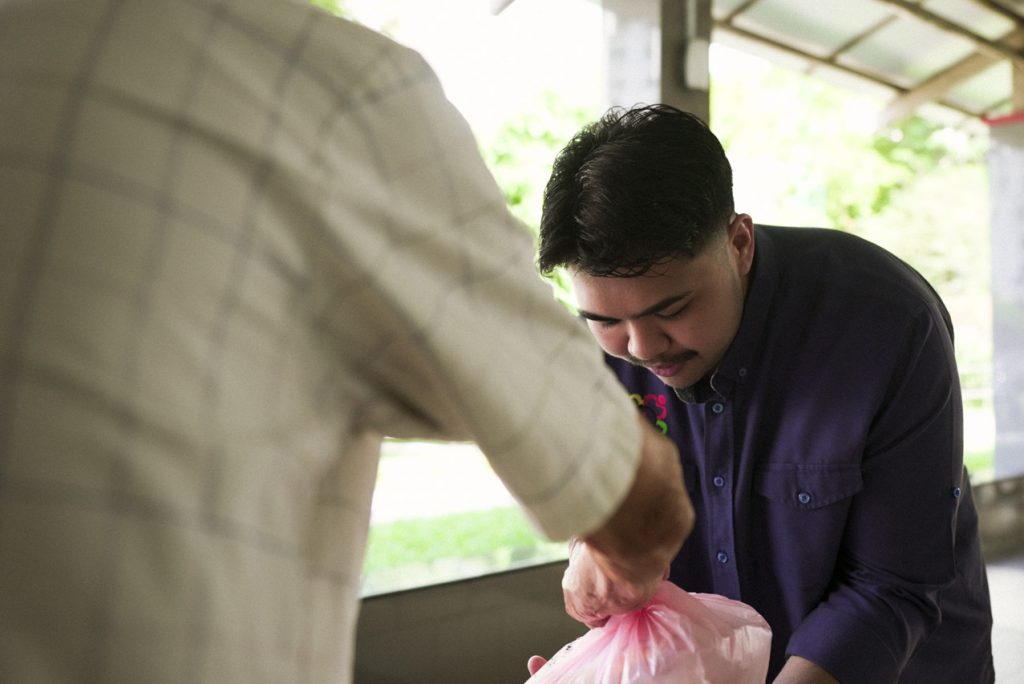
A Son Growing Into His Father
Since joining FFFA, Ammar realises he’s begun thinking more like his dad. His mind often drifts into similar fantasies and fears of where FFFA could go, and how it can improve.
He dons his father’s old shirt, the one Nizar used to wear to FFFA events, and it fits him like a second skin. With the matching facial hair, he looks just like a young Nizar.
The resemblance runs deeper. Much like their father, Ammar and his brother have poured countless hours into tweaking the quality, taste, and nutrition of their meals, knowing their food might be someone’s only meal of the day.
On top of tweaking food quality, Ammar and his brother have poured countless hours perfecting menus for targeted groups that have strict diets, including diabetics and renal patients—people like Nizar.
He used to tell his dad that it was impossible to please every single one of his beneficiaries. Now, he finds himself on his dad’s side of the argument.
“Even if we only had 10 beneficiaries, I have to think that these 10 people mean the world and more to me. They’ve reached out to me and they’re under my duty of care.”
Ammar points out that for all of Singapore’s successes, we often forget there are always people struggling to put food on the table, including people who are sometimes turned away from other charities based on criteria like the size of their flats.
Recently, he met a widow who lived on her own in a barren five-room flat; she didn’t just struggle to get support before FFFA, but also hesitated to reach out for help, believing she wasn’t worthy.
He even offered food to me, knowing that as a university student, I was hesitant to spend on breakfast. He echoes Nizar’s code to feed anyone who has the courage to request aid, no questions asked.
“If they humbled themselves to come to a place like this, who am I to request money? Who am I to turn them away?”
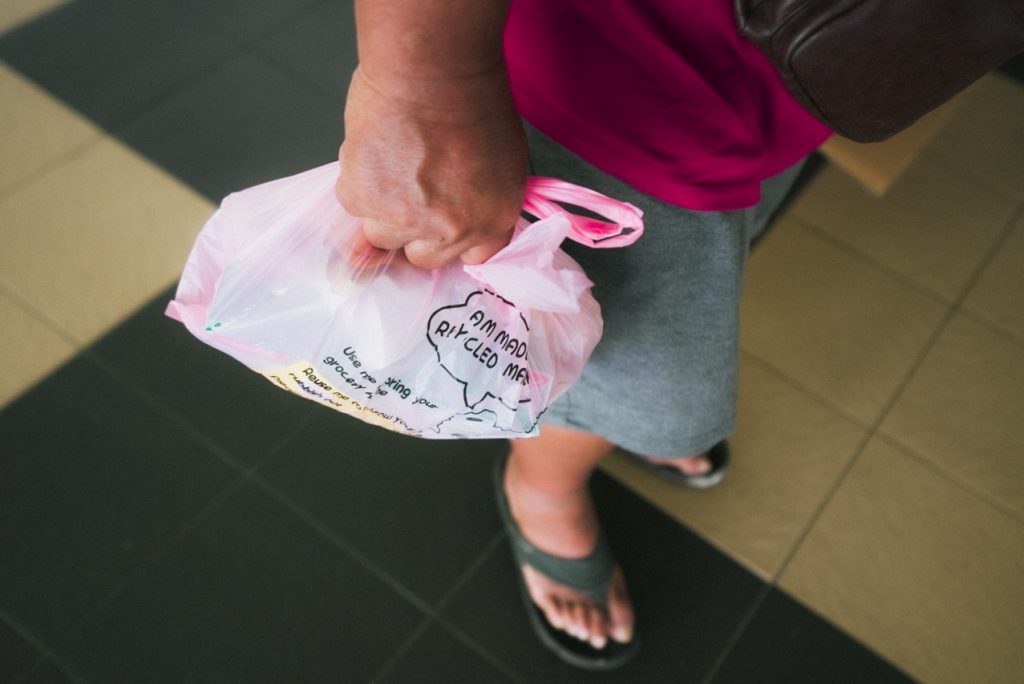
The past year hasn’t been the easiest. FFFA is still trying to get more companies to offer the charity financial support. At the same time, Ammar and his brother are looking to expand their food distribution efforts to new neighbourhoods.
Ammar seems like he still feels Nizar’s absence deeply. And I find myself wondering if he’s even had the time to process the loss. But Ammar tells me he takes solace in knowing that they’re walking down the right path, one that their dad helped pave.
“My dad had no one to guide him in this industry, I’m lucky enough to have the breadcrumbs that my dad had left for me to follow.”
The Dignity People Deserve
There’s still much to do. Eventually, Ammar’s vision is to expand FFFA beyond feeding. He wants to run workshops and give beneficiaries a way to break out of their hunger cycle.
Ammar tells me proudly that he intends to go into FFFA full-time after his National Service stint, because he sees what his father saw: this work is about providing people the basic dignity they deserve, especially in a society where we often forget people can still fall through the cracks.
For Ammar, ‘doing enough’ isn’t simply him imitating his father’s work. It’s adding to the foundation Nizar put down, and going even further.
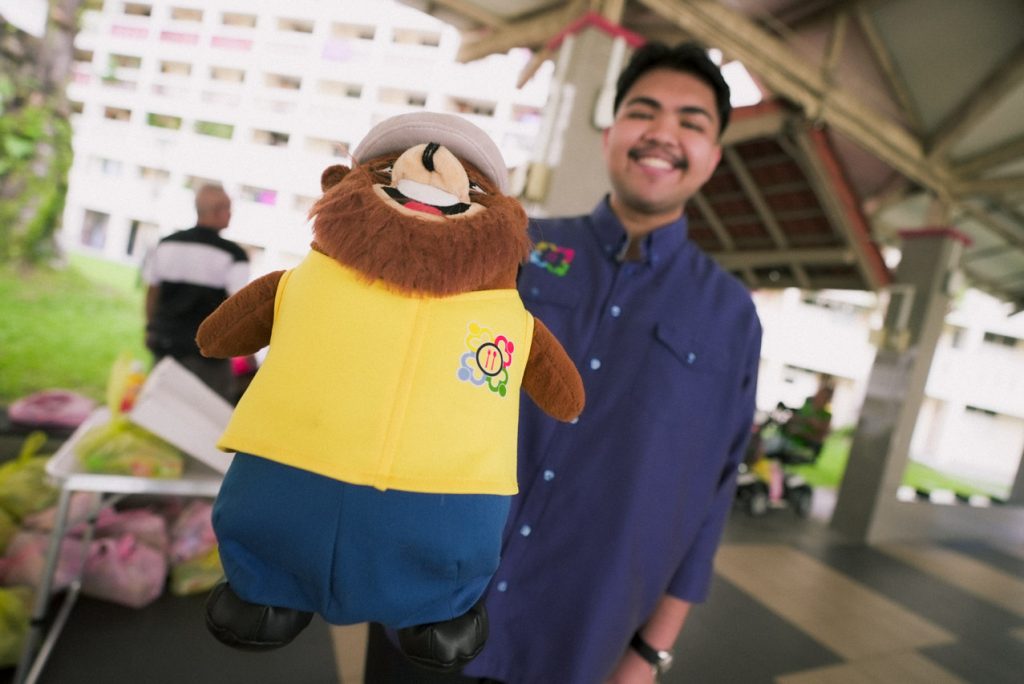
“Thankfully, God gave me something which my dad wanted: more time.”
Even if help doesn’t directly go to FFFA, Ammar wants people to use his father’s story to motivate themselves, to remember that anyone can be philanthropic. It doesn’t take a superhero to be kind.
“If my dad could do it, then anyone else can do it. And that’s good enough for me.”
To take a few words from an unfinished children’s book Nizar left behind: “Think of something to do, for someone in need. And you’ll make a difference. That’s Big Bear guaranteed.”

